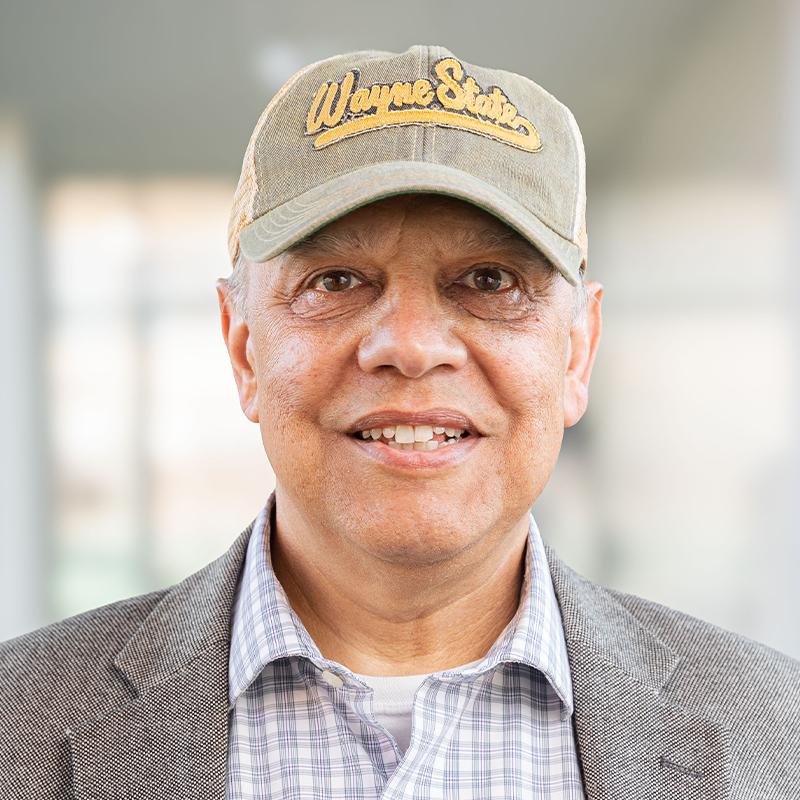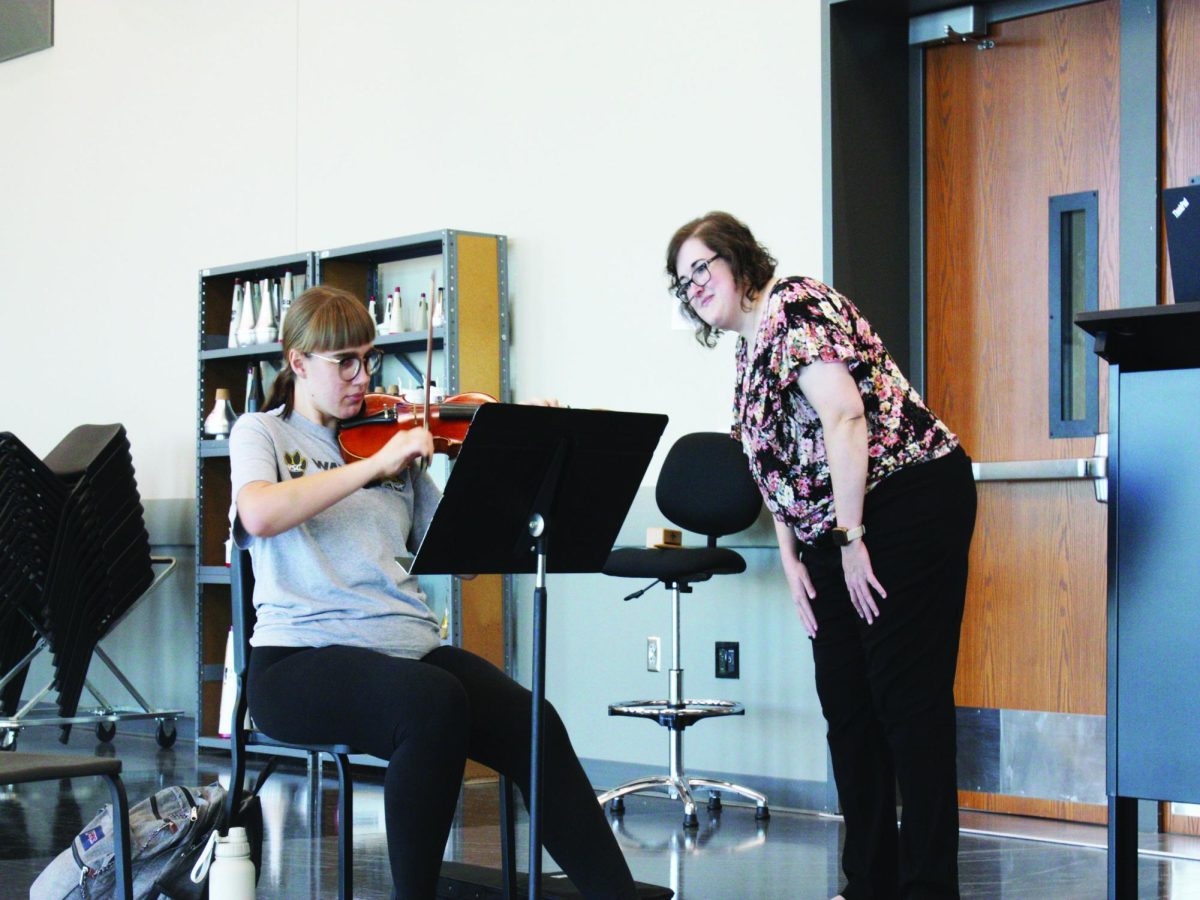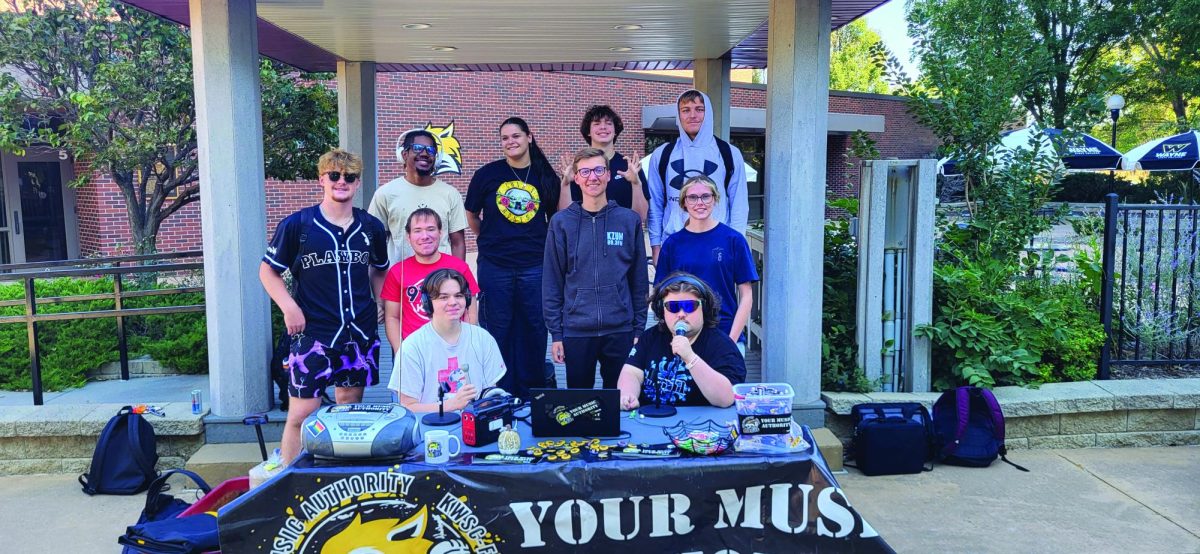First Generation Students of Color Struggles
November 16, 2022
Wayne State College hosted an event on Nov. 8 at 6 p.m. in Gardner Hall.
Guest speaker Robert Lipsey came from Iowa State University to talk about the struggles first-generation college students of color may have.
Lipsey is the program director for Trio Student support services and works in the department of Student Support Services. Lipsey is a first-generation college student himself and is very passionate about helping current first-generation students.
Nearly one in three college students are first-generation students of color. 41% of African American students are first generation. Lipsey said, there are many barriers that students face when going into college, including family conflicts and guilt.
“I can relate to this personally,” Lipsey said. “When I went to college, I was a student-athlete who played football. I had many experiences that were often different from other college students.”
Lipsey said his dad helped him understand the importance of being a role model for others.
“After watching my dad go back to college, he told me that he did that to show that I can do that too, I understood the importance of being a role model,” Lipsey said.
Racism, classism and feelings of isolation are just some of the things first-generation students of color feel when entering a college.
“Culture mismatch is big,” Lipsey said. “When they come to campus and don’t see themselves, they tend to ask questions like, how do they feel about me being here? This is where a lot of the isolation comes into play.”
Lipsey said financial issues can be a problem too.
“Another issue I like to talk about is loans,” Lispey said. “I didn’t have enough money when I went to college, and I had no one back home that could cosign for me to take out a loan. It was hard but eventually, a mentor of mind was able to cosign for me.”
“Students may be able to afford school but not the things that come along with schools such as clubs and events,” Lipsey said. “At Iowa State, we have a food pantry, we actually ended up collecting 400 food items for students.”
“When I was in school, I never submitted my financial aid on time which then resulted in me not getting the full aid that I needed, so the importance of helping first-generation students understand what financial aid is, how much they need to take out and that they’re going to have to pay it back to the school,” Lipsey said.
“Something many people don’t understand about first-generation college students is there is no one there to help you, no one to help apply for schools it’s hard figuring everything out,” Lipsey said.
Lipsey said he has his students connect with advisors right away to get the help they need in order to succeed.
“Mental health is thing students are impacted by, we make sure to talk to students about their mental and physical health so students can be on the right path to succeed in school,” Lispey said.
“College offers many different services in order to help their students grow in the ways needed, first-generation students have all those services provided for them as well, but they don’t always have all the information they need right away, tutoring is one of the main services we like to push our first-generation student towards,” Lipsey said.
Lipsey said that first-generation students don’t just struggle in the classroom but outside.
“What helps students outside the classroom is ensuring that students are socially integrated, providing intensive, holistic support services and forming authentic relationships between students and staff,” Lispey said.
Lipsey said there are ways to help students within the classroom as well.
“Ways to help students in the classroom like ensuring that students form relationships with faculty and feel appreciated as individuals,” Lispey said.
“I had someone that mentored me in school who was my professor/advisor and that person really helped me get through college, and I was so thankful for them, still am,” Lipsey said.
Lipsey said that he is very proud to be a first-generation student and have graduated but he is prouder to have kids that aren’t first-generation students.
“All the things my kids might not be sure about, I’m proud to share with them,” Lispey said.
“When I first started at college, I didn’t even know how to read a syllabus,” Lispey said. “The starting point for a lot of our first-generation students is a high point when they first show up at college, they love it by after a couple of weeks the transaction can get hard.”
Lipsey said when he was in college, he had to learn how to advocate for himself.
“I was at a high point when I learned to advocate for myself with financial aid, scholarships, housing, food, deadlines, college policies and academic advising,” Lipsey said. “Thankfully I found a great group of guys. I connected with one of the guys more and if it wasn’t for him, I don’t know if I would’ve graduated.”
“I didn’t have money when I was in college,” Lispey said. “When all of my friends were going on spring break I couldn’t go, same thing with Thanksgiving break, instead we would have this thing called Friendsgiving where everyone would bring a dish and we would eat together. Finding your community is so important.”
Lipsey said there are four main tips he would give to college students.
“Embrace your journey and be proud of yourself, get out of your comfort zone, talk with faculty and staff, seek academic support and office hours and lastly teachers should build students confidence so they can graduate,” Lispey said. “We need to support our students by listening to them and supporting them in any way they need, although times have changed the issues haven’t changed.”
Amber Novotny, a senior at WSC, attended the first-generation students of color event and walked learning so much.
“I learned so much at this event,” Novotny said. “I loved being able to hear all the stories Robert Lipsey shared with us, and I loved that he was willing to share with us. I really liked that Wayne has events like this one, I just wished more people would’ve shown up, I feel like they missed such a great opportunity to learn more about their fellow students.”







